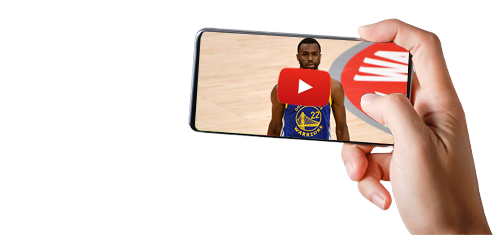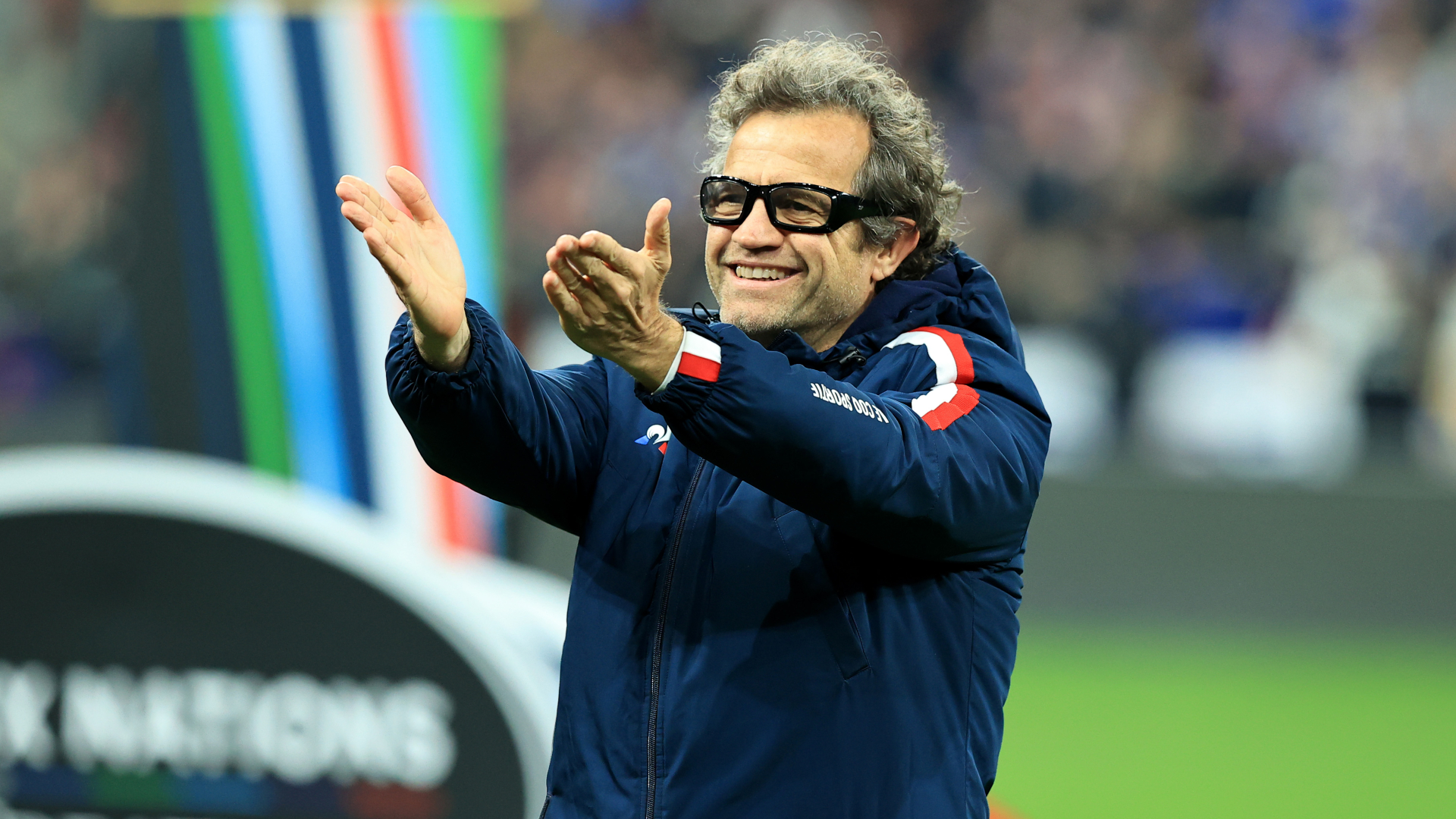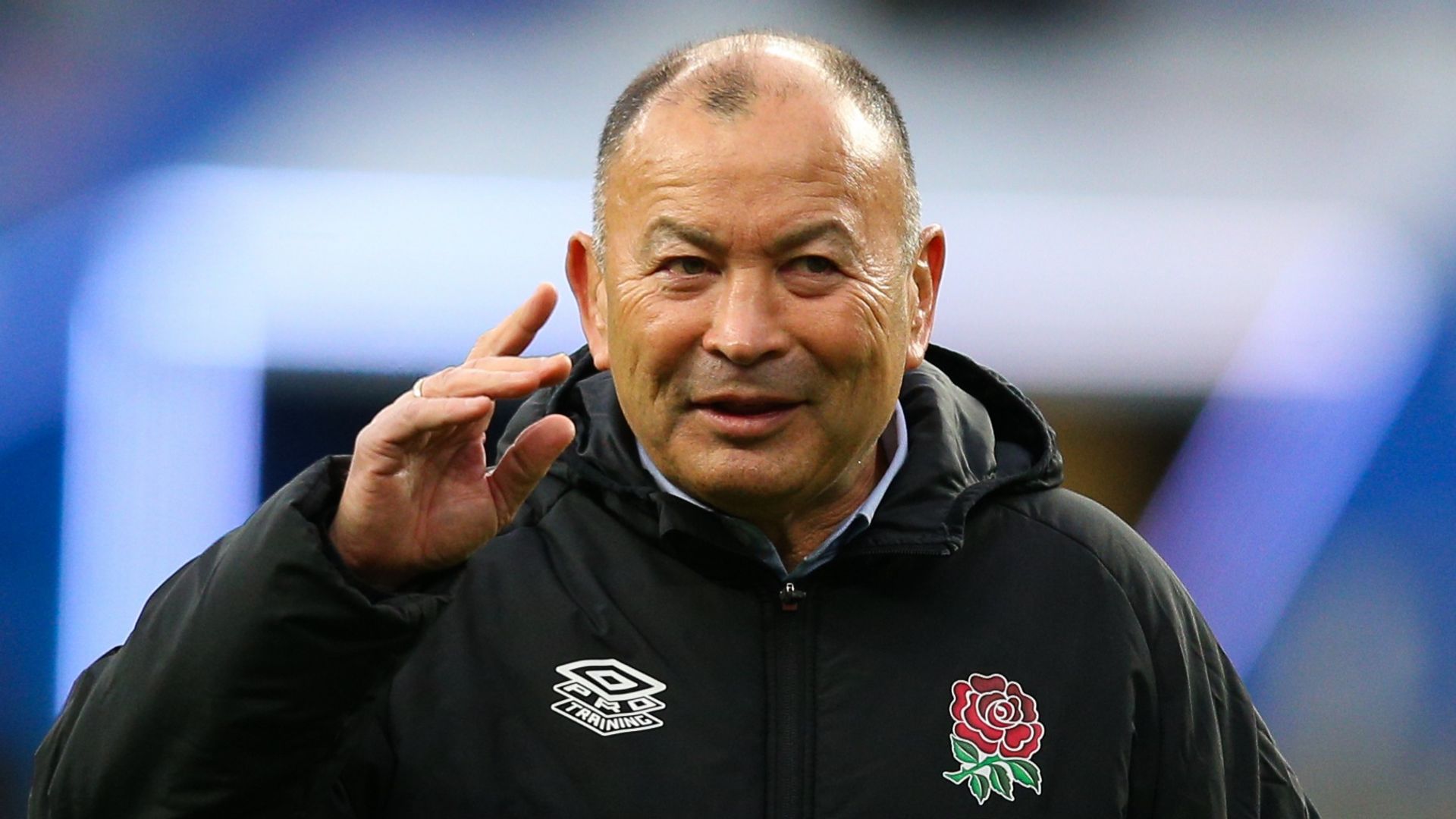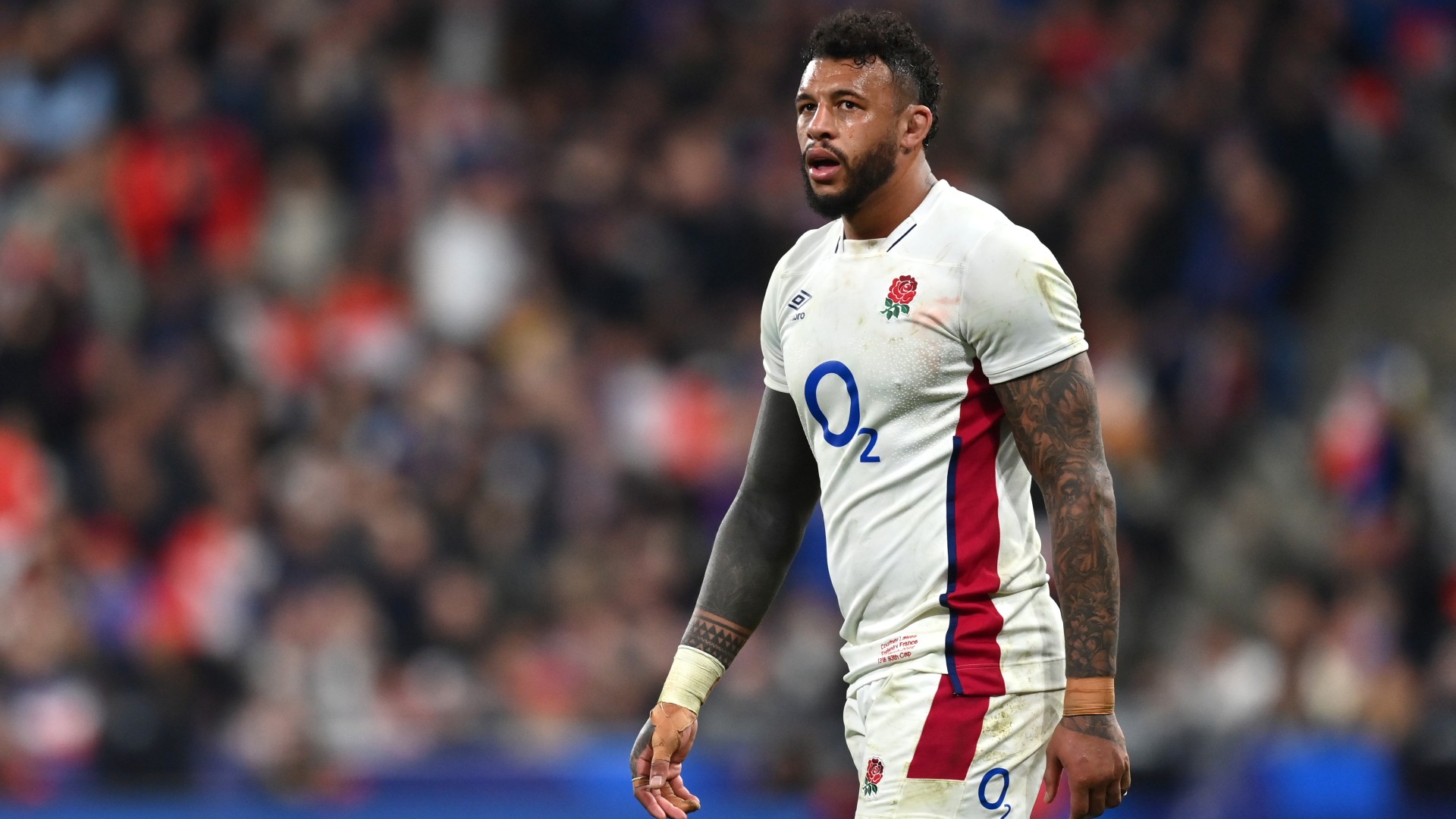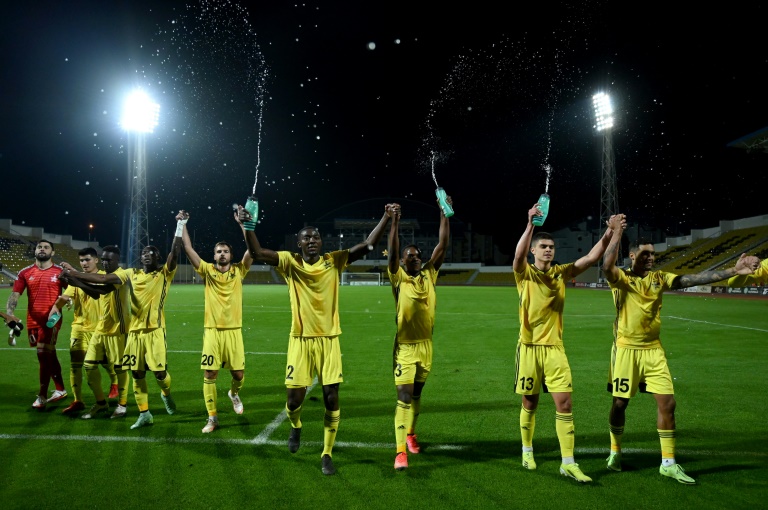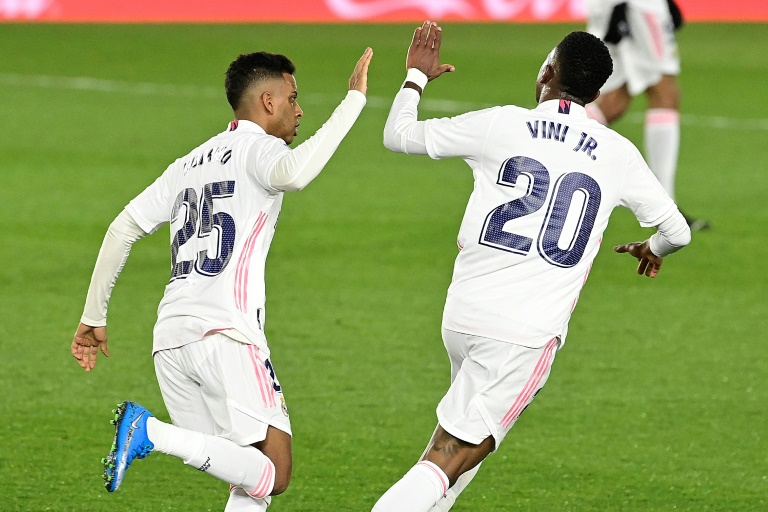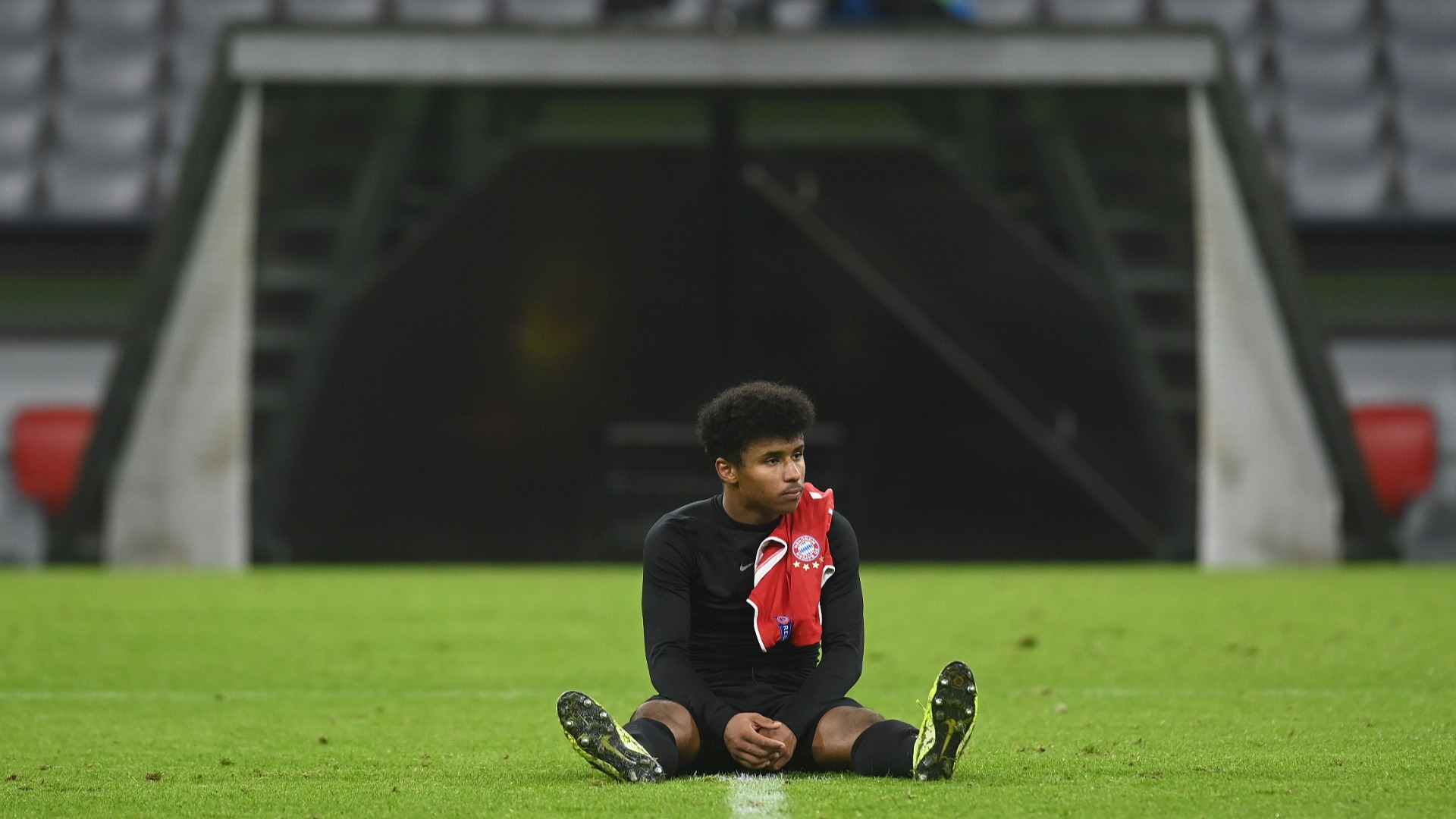
It’s November 25, 2020. A young German winger stands on the touchline anxiously waiting to step on to the Allianz Arena pitch for his Champions League debut in his hometown.
But as he waits to be allowed on, there are people watching both on television and in the largely empty stands who know this isn’t how it should’ve been.
Rather than wearing the all-red of Bayern Munich, Karim Adeyemi jogs on in the all-black of Salzburg with the Austrian champions 3-0 down.
A technically gifted and rapid forward, Adeyemi has long been considered one of Germany’s most promising young players, having cost Salzburg a reported €3million when he was 16.
Adeyemi had left Bayern six years earlier. It’s a detail that has dominated much of his early professional career, with questions about why he left never far away.
Now 20, Adeyemi has previously spoken at length about his attitude as a kid, how learning wasn’t much to his liking and distraction was a regular nuisance to him. These factors certainly didn’t help at Bayern.
Neither, Adeyemi alleged in the past, did the club, who he said showed little support to players who strayed from “the plan”. The collective, rather than individualistic talents, was prioritised.
He and Bayern were simply not a good match at the time. He left Die Roten and, while such a disappointment might’ve been enough to derail other ordinary kids, Adeyemi has since proven he is rather extraordinary.
A move to a smaller local club, Unterhaching, soon followed. It was there that, according to youth coach Marc Unterberger, Adeyemi was able to develop with a greater degree of individual emphasis and that eventually translated into him becoming a better asset for the team as a whole.
“He had his own thoughts on how to deal with things,” Unterberger told Stats Perform in 2021. “We never wanted to change him completely, and I think we succeeded quite well. Karim is a really great guy and a great person.
“Until the time Karim came to us, we had never had such an exceptional player in our youth division.
“Of course, as a young person, you benefit from being accepted for who you are, but I would like to make it very clear that there was no situation within the team in which Karim behaved in such a way that we as a club were forced to act.
“On the contrary, over time he developed more and more towards putting himself at the service of the team. He was easily distracted, that’s right, but let’s be honest, something like this is normal when young people develop.”
Unterberger arguably knows Adeyemi better than any other coach, given he was there for the youngster’s entire six-year stay at Unterhaching.
“I can still remember it very well, the first time I saw him play in an Under-11 tournament,” he recalled.
“Back then he was still playing for TSV Forstenried. My first thought was: ‘We absolutely need this player’. Fortunately, it worked out later!”
That might be something of an understatement in reality. The €3m fee that Unterhaching received made him the most expensive Under-18 German player ever at the time, while 2019 saw him win the Fritz-Walter Gold Medal, an award handed out to Germany’s best youth player. Previous winners include Timo Werner, Emre Can and Mario Gotze.
But most importantly, that move proved an unequivocal success for the player, as did his next.
Adeyemi confirmed to Stats Perform last year that he rejected the chance to join Chelsea from Unterhaching in his teens, instead opting to move just over the border to Salzburg. Had he gone to London, maybe he would’ve broken into their first-team – but it’s probably just as likely that he’d have been lost among the Blues’ army of loan players.
That’s not to say loans can’t work. Adeyemi’s Salzburg career was carefully mapped out for him even before he joined, and that included an initial 18-month stint with Liefering, who essentially act as a B team. A haul of 15 goals and eight assists in the second tier provided strong evidence the teenager was ready for the step up in 2020.
His introduction to top-tier football wasn’t quite so explosive, only having a hand in goals in six of his first 29 Austrian Bundesliga matches, but a key factor here was the need to remain patient – only nine of those 29 games were as a starter.
It wasn’t until the final three months of 2020-21 that Adeyemi began to nail down a starting role, with seven of his 11 starts coming between mid-February and the end of May. This period also yielded six of his seven league goals.
This proved the final push he needed – with Patson Daka leaving for Leicester City, Adeyemi went from being the forwards’ supporting act to the leading man in attack.
As you’d expect, this led to a bit of a change in his role, but there’s no doubt he’s thriving, securing his first senior international cap in September and finding himself linked heavily with Borussia Dortmund.
Sure, chance creation frequency is down (2.7 per 90, to 1.6), but the pay-off in terms of his effectiveness in front of goal is more than worth it.
His 14 goals is a league high, while only Kelvin Yeboah (11.2) – who has since joined Genoa – can better Adeyemi’s 10.1 non-penalty expected goals (np-xG). Though on a per-90-minute basis, Adeyemi ranks first in the division with 0.72 np-xG (minimum 650 minutes played).
But it would be doing Adeyemi a huge disservice to give the impression he’s ‘just’ some poacher. He’s an immensely exciting player characterised by his explosive pace, low centre of gravity and silky ability on the ball. Yeboah (21) is the sole forward with more carries leading to shots and chances created than Adeyemi (21), though the Ghanaian’s total comes from nearly 300 minutes more on the pitch.
It’s a similar story in the Champions League. His carries led to a combined total of eight shots and chances created in the group stage – the only Opta-defined strikers to better that were Kylian Mbappe, Cristiano Ronaldo (both nine) and Arnaut Danjuma (14).
Even if it’s reductive to just look at that metric, there’s no doubt his performances have translated to European football’s biggest stage – Sevilla’s Diego Carlos will have been hoping to never see the youngster again after terrorising the Brazilian in the group.
Adeyemi’s displays were a major factor in Salzburg reaching the knockouts of the Champions League for the first time in their history.
It would be a truly inspirational tale were it to be him, the young Bavarian cast-off, who plotted Bayern’s downfall this time.



